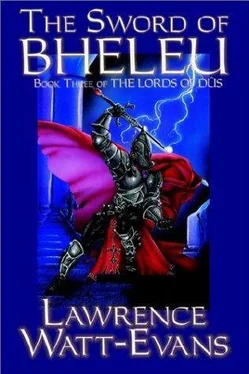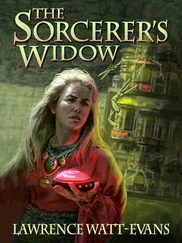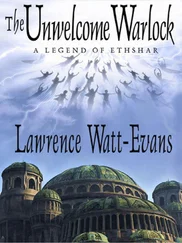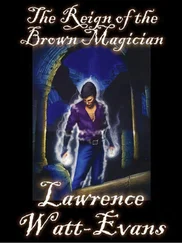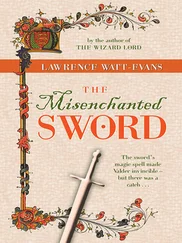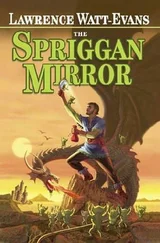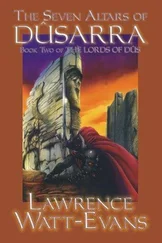Lawrence Watt-Evans - The Sword Of Bheleu
Здесь есть возможность читать онлайн «Lawrence Watt-Evans - The Sword Of Bheleu» весь текст электронной книги совершенно бесплатно (целиком полную версию без сокращений). В некоторых случаях можно слушать аудио, скачать через торрент в формате fb2 и присутствует краткое содержание. Жанр: Фэнтези, на английском языке. Описание произведения, (предисловие) а так же отзывы посетителей доступны на портале библиотеки ЛибКат.
- Название:The Sword Of Bheleu
- Автор:
- Жанр:
- Год:неизвестен
- ISBN:нет данных
- Рейтинг книги:3 / 5. Голосов: 1
-
Избранное:Добавить в избранное
- Отзывы:
-
Ваша оценка:
- 60
- 1
- 2
- 3
- 4
- 5
The Sword Of Bheleu: краткое содержание, описание и аннотация
Предлагаем к чтению аннотацию, описание, краткое содержание или предисловие (зависит от того, что написал сам автор книги «The Sword Of Bheleu»). Если вы не нашли необходимую информацию о книге — напишите в комментариях, мы постараемся отыскать её.
The Sword Of Bheleu — читать онлайн бесплатно полную книгу (весь текст) целиком
Ниже представлен текст книги, разбитый по страницам. Система сохранения места последней прочитанной страницы, позволяет с удобством читать онлайн бесплатно книгу «The Sword Of Bheleu», без необходимости каждый раз заново искать на чём Вы остановились. Поставьте закладку, и сможете в любой момент перейти на страницу, на которой закончили чтение.
Интервал:
Закладка:
This overman, however, seemed to have power of an order only divine intervention could explain. In that case, it would not be safe to use ordinary measures against him. Garth had defied the cult of Aghad and slain its high priest. For that he must die horribly; that could not be altered. Methods could be changed, however, and where Haggat had previously planned to use the cult's own elaborate system of spies and assassins to torment and eventually kill Garth, he now thought that might be unwise. It would be better to turn another enemy against the overman and let the two destroy each other, allowing the Aghadites to assess their power, and leaving the survivor weakened so that the cult might then handle him directly.
Furthermore, he knew exactly the right enemy to use for this purpose; an enemy of his own, an enemy he had long sought vengeance upon.
The priesthood had not been his first choice for a career; as a youth he had set out to become a sorcerer and had served several years as a wizard's apprentice. His master, a very great magician, had mistreated him, insulted him, abused him, and withheld secrets from him. His frustration and anger had fed upon each other and grown in him until finally, one night, he had demonstrated decisively how well he had learned his lessons and how much his master had underestimated him. The demons he conjured took more than an hour to finish pulling the old wizard to pieces.
It was only after the demons had done their work and been sent away that he learned one of the facts his master had concealed from him-the existence of the Council of the Most High, a secret society of magicians of every kind that sought to limit and control the knowledge and use of the arcane arts. His late master had been a member and had carried a spell that alerted his fellow councilors the instant he died.
The killing of one of their number was something the Council did not condone under any circumstances. They destroyed or confiscated all Haggat's belongings, placed a geas upon him that severely limited his magical abilities, cut out his tongue to prevent him from revealing any of his forbidden knowledge or reciting incantations, and then dumped him before a temple of Aghad, the god of treachery and ingratitude, among other things.
Aghad was also, as Haggat had known even then, a vengeful god, and he had willingly entered the priesthood in the hope of eventually gaining the revenge he had sworn. Though he rose steadily in the cult's hierarchy, due largely to the little magic he still retained, vengeance had eluded him; he had been unable to convince the cult to take action against the Council. Even now, when he had become absolute ruler of the Aghadites, he had not yet attempted anything. He knew that the Council was too powerful and too well-informed to be attacked without much careful planning and preparation. Its members included virtually all the most powerful wizards of the northern lands, and to defeat such a confederation would require great stealth and skill-or equal power.
He had assumed that no equal power existed in the world, but now, he thought, this enchanted sword that the overman called Garth carried might be just such a power. It angered him to think that the weapon had lain unused in Dыsarra, a few hundred yards from his own temple, without his knowledge. It could well have been there, offering countless opportunities for theft, since he first came to the city. He had been unaware of it until this overman came along and blithely stole it, wiping out Bheleu's cult in the process, defiling Aghad's temple, and spreading the White Death in the marketplace.
Now, though, Garth and the Council of the Most High would both pay for their temerity in defying him. He needed merely to turn one against the other. Certainly one or the other would be destroyed, and he could then deal with the survivor.
How, then, could this be accomplished? How could he convince the Council that Garth was a menace, or convince Garth to attack the Council?
There was a hesitant knock on the chamber's door; the voice of his chief acolyte called, "Is all well, master?"
He turned, his chain of thought broken by this distraction, and noticed for the first time the damage done by the exploding glass. Glittering chips were strewn everywhere, and the draperies that lined the walls were spattered with smoking scorched spots where bits of hot debris had struck them. His own robe was similarly damaged, with several smoldering patches and half a dozen holes where the flying shards had penetrated. None had struck his flesh, though; the protective charms he carried, feeble as they were, had at least done that much.
His hands were another matter; when he snapped his fingers to summon the acolyte into the room he discovered that his fingertips were burned, as well as his palms. He winced with pain; when the acolyte limped into the chamber, he had his fingers in his mouth, a pose most unbecoming the dignity of his position as high priest.
The acolyte was not stupid enough to remark on it or to acknowledge in any way that anything was out of the ordinary. She said, "Forgive me, master, but I heard a strange noise, and feared for you. How may I serve you?"
Haggat considered for a moment. He would want her back in his bed shortly, but wished to have a few minutes to think first, and he knew he might as well put her to use. He made a sweeping gesture, indicating the broken glass on the floor.
"Your scrying glass?" The girl tried to keep her voice emotionless, but it was clear that she was puzzled.
He did not deign to nod; the fact that he did not hit her was acknowledgment enough that she was correct.
"I'll have it cleaned up immediately." She noticed the damaged hangings and added, "I'll have the draperies replaced as well, and inquiries will be made toward acquiring a new crystal. Is there anything else, master?"
It was not worth explaining by sign or note what he was considering; he would think it out himself first, before consulting with the other priests. He dismissed her with a wave, then caught himself. He did not want her to think that her duties would be done for the night after the clean-up. He pointed in the direction of his bedchamber.
"Of course, master; I am yours to do with as you will." She bowed low and backed out, favoring the leg and foot he had injured a few nights earlier.
He looked about at the scattered chips of glass. How could he turn the Council and the overman against each other?
When Darsen's carrier pigeon arrived three days later with the old man's report describing the destruction of Skelleth and the murder of the Baron, Haggat had his answer.
CHAPTER NINE
Garth awoke to find himself lying in the middle of a narrow alleyway; to one side was an old ruin, to the other side a burning building. Directly before him the Sword of Bheleu lay in the dirt, the gem in its pommel dark.
It was night; his only light came from the fire. Stiff and sore, he clambered to his feet and looked about.
He recognized the burning building; it was the house where he had found and killed that old man. He vaguely remembered the actual killing; he had spent a long time at it. There was blood on his hands, he noticed, but he could not be sure that it came from the old man; he had killed several people. It might even have come from a wound of his own, though he hadn't noticed any.
He tried to remember what he had done after the man in red had finally died, to explain why he had found himself unconscious in an alleyway, but it was all very hazy. There had been something watching him, and he had done something with the sword-not cut, nor set afire, but something very difficult, something that had tired him. He couldn't recall exactly what. After that he had staggered out, setting the house ablaze behind him, and that was all he could remember. He must have collapsed immediately afterward.
Читать дальшеИнтервал:
Закладка:
Похожие книги на «The Sword Of Bheleu»
Представляем Вашему вниманию похожие книги на «The Sword Of Bheleu» списком для выбора. Мы отобрали схожую по названию и смыслу литературу в надежде предоставить читателям больше вариантов отыскать новые, интересные, ещё непрочитанные произведения.
Обсуждение, отзывы о книге «The Sword Of Bheleu» и просто собственные мнения читателей. Оставьте ваши комментарии, напишите, что Вы думаете о произведении, его смысле или главных героях. Укажите что конкретно понравилось, а что нет, и почему Вы так считаете.
